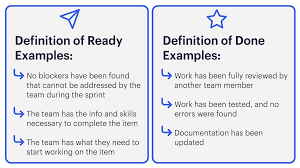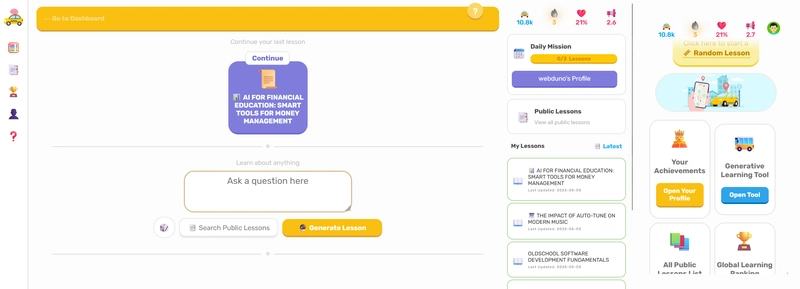Introduction
Developer job titles sound straightforward, but in reality, they can be misleading, inconsistent, and vague.
💡 "Junior vs. Mid vs. Senior → what’s the real difference?"
💡 "Why do job descriptions list unrealistic expectations?"
💡 "What does ‘Full-Stack Developer’ even mean anymore?"
💡 "Why do two companies define the same role completely differently?"

Let’s break down the truth behind developer roles, how job titles don’t always match reality, and how HR missteps can make hiring confusing.
1️⃣ Junior, Mid, and Senior Devs – What’s the Actual Difference?
🟢 Junior Developer (0-2 Years of Experience)
✅ Still learning core concepts and best practices.
✅ Works on small tasks with supervision.
✅ Struggles with debugging and needs guidance from experienced devs.
✅ Writes code, but doesn’t design architecture or make big decisions.
📌 Reality Check:
❌ Many "junior" job listings require 2+ years of experience (which doesn’t make sense).
❌ Some companies expect juniors to work like mid-level devs without proper training.
💡 Truth: A junior dev’s job is to learn, but many companies expect too much too soon.
🟠 Mid-Level Developer (2-5 Years of Experience)
✅ Writes clean, maintainable code with minimal supervision.
✅ Can debug, optimize, and improve code independently.
✅ Works on larger features, sometimes designs small-scale architectures.
✅ Helps juniors by reviewing their code and giving feedback.
📌 Reality Check:
❌ Some companies expect mid-level devs to handle senior responsibilities without the title or salary.
❌ Some "mid-level" jobs ask for 8+ years of experience → which is ridiculous.
💡 Truth: Mid-level devs should be problem solvers, but they’re often forced into senior-level work without recognition.
🔴 Senior Developer (5+ Years of Experience)
✅ Can design architectures and lead projects.
✅ Understands scalability, security, and best practices at a deeper level.
✅ Reviews code, mentors juniors, and makes high-level technical decisions.
✅ Balances technical and business needs, thinking beyond just code.
📌 Reality Check:
❌ Many "senior" jobs require knowledge of 10+ technologies → which isn’t realistic.
❌ Some seniors are overloaded with responsibilities because their company lacks structure.
💡 Truth: Being a senior isn’t about years of experience → it’s about leadership, problem-solving, and decision-making.
2️⃣ Unrealistic Job Descriptions vs. Real Responsibilities
Ever seen a job post like this?
"Junior Developer – Must have 5+ years of experience in React, Node.js, Kubernetes, AWS, and Machine Learning."
Wait… what? 🤔
📌 Common Problems with Job Listings:
❌ Entry-level roles requiring mid/senior-level skills.
❌ Expecting developers to be experts in everything (full-stack, DevOps, AI, etc.).
❌ Buzzword stuffing → HR adding every trendy tech just to attract candidates.
❌ Descriptions that don’t match actual job responsibilities.
💡 Truth: Many job descriptions are written by HR teams who don’t understand the real requirements.
✔ What to Do?
- Apply even if you don’t meet 100% of the criteria → many companies list "wishlists," not real requirements.
- Ask about real responsibilities in the interview → don’t assume the job description is accurate.
3️⃣ HR Issues: How Lack of Competence Leads to Bad Job Titles
Many HR recruiters don’t understand technical roles, leading to confusing, misleading, or inaccurate job postings.
📌 Common Issues in Tech Hiring:
❌ Confusing job titles → a "Software Engineer" at one company might be a "Frontend Developer" at another.
❌ Overuse of buzzwords → HR adding irrelevant technologies just to "sound technical."
❌ Vague descriptions → Some listings don’t even explain what the company actually does.
❌ Mismatch between expectations and pay → "Junior" positions that require senior-level skills but pay junior salaries.
💡 Truth: Many HR departments don’t understand what developers actually do.
✔ What to Do?
- If a job title seems wrong, ask about responsibilities before rejecting it.
- If a listing is full of random buzzwords, it’s a red flag.
- If they expect everything for a low salary, don’t waste your time.
4️⃣ The Hidden Truth Behind "Full-Stack Developer"
The term "Full-Stack Developer" used to mean someone skilled in both frontend & backend development. Now? It’s often a catch-all term for ‘do everything’.
📌 Reality Check:
❌ Some companies use "full-stack" to mean developer + DevOps + database admin + UI designer.
❌ Some full-stack jobs expect deep expertise in both frontend and backend, which isn’t always realistic.
💡 Truth:
✔ A real full-stack developer is strong in one area (frontend/backend) but comfortable working in both.
✔ You don’t need to master everything to be a good full-stack dev.
✔ If a "full-stack" job lists 20+ required skills, be cautious → it might be too broad to be realistic.
✔ What to Do?
- If you prefer frontend or backend, don’t feel pressured to be full-stack.
- Ask about actual daily responsibilities before taking a full-stack job.
5️⃣ How Different Companies Define the Same Roles Differently
A "Software Engineer" at Company A might be a "Backend Developer" at Company B.
A "Frontend Developer" at one company might be called a "UI Engineer" somewhere else.
📌 Why?
✔ Companies define roles based on their needs, not universal standards.
✔ Some companies use inflated titles to attract talent.
✔ Some startups expect developers to wear multiple hats.
💡 Truth: Job titles don’t always match actual responsibilities.
✔ What to Do?
- Focus on job responsibilities, not just the title.
- Ask about team structure → are you the only dev, or part of a larger team?
- If the role seems too broad, ask for clarification before accepting it.
💡 Final Thoughts: Titles Are Confusing, But Skills Matter
✔ Job titles are inconsistent across companies → focus on actual responsibilities.
✔ HR and recruiters often mislabel roles → don’t let bad job listings discourage you.
✔ "Full-Stack Developer" is often overloaded → clarify expectations before accepting.
✔ Your skills matter more than your job title → build expertise, and opportunities will come.
💬 Your Thoughts?
Have you ever seen a ridiculous job listing? What’s the weirdest job title you’ve come across? Let’s discuss in the comments! 🚀
Enjoying the content? If you'd like to support my work and keep the ideas flowing, consider buying me a coffee! Your support means the world to me!




